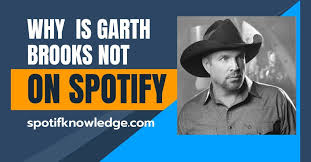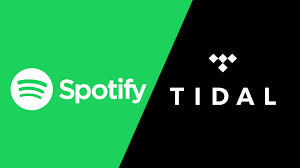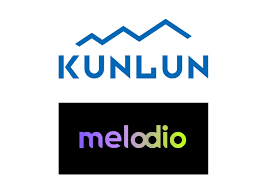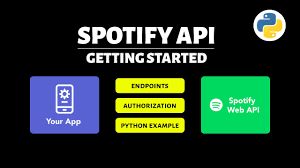Whether you're a freelance content creator, a music producer, or a digital nomad who lives on lo-fi beats while working, you've probably wondered:
Can I write off Spotify as a business expense?
It’s a practical question, especially when you’re trying to maximize deductions and reduce taxable income. But just because you use Spotify during your workday doesn’t automatically mean the IRS or your local tax authority will see it as a legitimate business expense.
This guide dives into the real answer—with legal context, practical advice, and examples tailored for freelancers, musicians, and online entrepreneurs. We'll cover when and how Spotify can be written off, the risks of misclassification, and what kind of documentation you should keep to stay compliant.
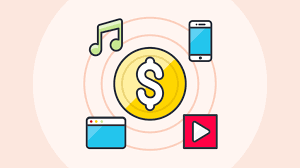
What Qualifies as a Business Expense?
Before jumping into Spotify specifically, it's critical to understand the core concept behind tax deductions.
According to the IRS Publication 535, a business expense must be:
Ordinary: Common and accepted in your profession or trade
Necessary: Helpful and appropriate for your business
So, if you're a YouTuber who reviews streaming platforms, Spotify might qualify. If you're an accountant who listens to playlists during work, it's harder to justify.
Bottom line: context matters. And the IRS often considers the “intent” behind the expense.
Can You Deduct Spotify as a Business Expense?
The answer is: it depends on how you're using it and how you can justify its role in your work.
Let’s break it down by profession:
For Content Creators (YouTubers, Podcasters, Streamers)
If you use Spotify as part of content creation—say, reviewing music trends, critiquing playlists, or discussing streaming algorithms—it’s more than just background noise. It becomes a tool.
? In this case, Spotify could be considered a write-off under “research and development” or “subscription services” for digital tools.
Example: A YouTuber with a channel that analyzes top 100 Spotify songs may use the platform daily for scripting and production.
For Musicians, DJs, and Producers
Artists who use Spotify to monitor chart movements, study competition, or curate live setlists could also make a strong case.
? Many professionals in this field write off streaming subscriptions as part of their market research or gig prep.
Caution: If you're also using Spotify for personal listening, you’ll need to separate business from leisure.
You might need to allocate a percentage—like 60% for business use, 40% personal—especially if you’re ever audited.
For Freelancers, Writers, and Remote Workers
Here’s where it gets tricky.
If Spotify is merely a productivity boost (e.g., lo-fi while writing), it doesn’t meet the “necessary” requirement. The IRS likely won’t accept it as a deduction.
?? You can’t write off Spotify just because it makes work more enjoyable.
What the IRS and Tax Experts Say
Here's what real tax professionals and IRS guidance say about subscription services:
IRS Publication 535: There’s no specific mention of Spotify, but it refers broadly to software, tools, and subscriptions used for business.
TurboTax notes that subscriptions can be deducted if they're directly related to earning income.
CPA Journal warns against deducting personal-use services, even if used during work hours.
Tax consultant Tom Wheelwright, CPA, emphasizes:
“If you can document that Spotify contributes directly to your revenue generation, then you have a solid deduction. But you need to prove the connection.”
How to Document Spotify as a Business Expense
If you decide to write it off, documentation is everything.
Here’s what to do:
1. Keep Receipts
Save your monthly or annual Spotify Premium invoices. If you're using Spotify for Artists, even better—keep any related documentation.
2. Write a Justification Note
Explain in writing how Spotify ties into your work. Example:
“Spotify Premium is used to research playlist trends and study music metadata for my podcast series on indie music discovery.”
Keep this on file in case of an audit.
3. Separate Personal vs Business Use
Use separate accounts if possible. If not, estimate your business use (%) and deduct only that portion.
Example:
Annual Spotify Premium: $120
Business use: 70%
Deductible amount: $84
4. Track It in Your Accounting System
Log the Spotify charge under “business subscriptions” in your accounting software or spreadsheet.
Apps like QuickBooks, FreshBooks, or Wave let you tag and categorize this easily.
Spotify for Business Use: Other Scenarios
Beyond individuals, there are niche cases where Spotify may qualify as a legitimate expense:
1. Background Music for Business Venues
If you own a cafe, salon, or gym, you can’t legally use personal Spotify to stream music. But you can subscribe to Spotify Business via Soundtrack Your Brand.
This is specifically licensed for commercial use.
? This is 100% deductible as a business entertainment or ambiance cost.
2. Media and Entertainment Companies
Companies that use Spotify for analyzing trends, competitor research, or marketing insights can categorize it as part of their digital research budget.
? Documentation still required.
Risks of Writing Off Spotify Without Justification
Trying to deduct Spotify without proper cause could backfire:
Audit red flag: Especially if it’s listed under “entertainment” with no explanation.
Penalty or interest: If disallowed during an audit, you may owe back taxes plus interest.
Credibility hit: If you're mixing personal with business too often, the IRS may start questioning other deductions.
Conclusion: When You Can (and Can’t) Write Off Spotify
So, can you write off Spotify as a business expense?
? Yes, if:
It directly supports your business (e.g., content creation, market research, performance prep)
You can document that connection
You separate personal vs professional use
?? No, if:
You just use it for background noise while working
It’s primarily for personal enjoyment
Like all things in taxes, intent + documentation = safe deductions.
When in doubt? Talk to a licensed tax professional who understands creative industries and digital work. It's better to be safe than sorry with the IRS.
FAQs: Can I Write Off Spotify?
Q: Can I deduct Spotify if I’m a YouTuber or podcaster?
A: Yes, if it’s used for research or content creation. Keep documentation linking it to your work.
Q: What if I use Spotify at my business location?
A: You’ll need Spotify for Business (via Soundtrack Your Brand) to legally play music in public.
Q: Do I need to track my Spotify usage?
A: Yes. Especially if you use it for both personal and business. Estimate the percentage used for work and deduct accordingly.
Q: Can I write it off if I’m just a freelancer who listens while working?
A: No. Enjoyment or productivity isn’t enough to qualify as a deductible business cost.
Q: What tools can help me track business expenses like Spotify?
A: QuickBooks, FreshBooks, Wave, or even a Google Sheet can help categorize and document expenses.

